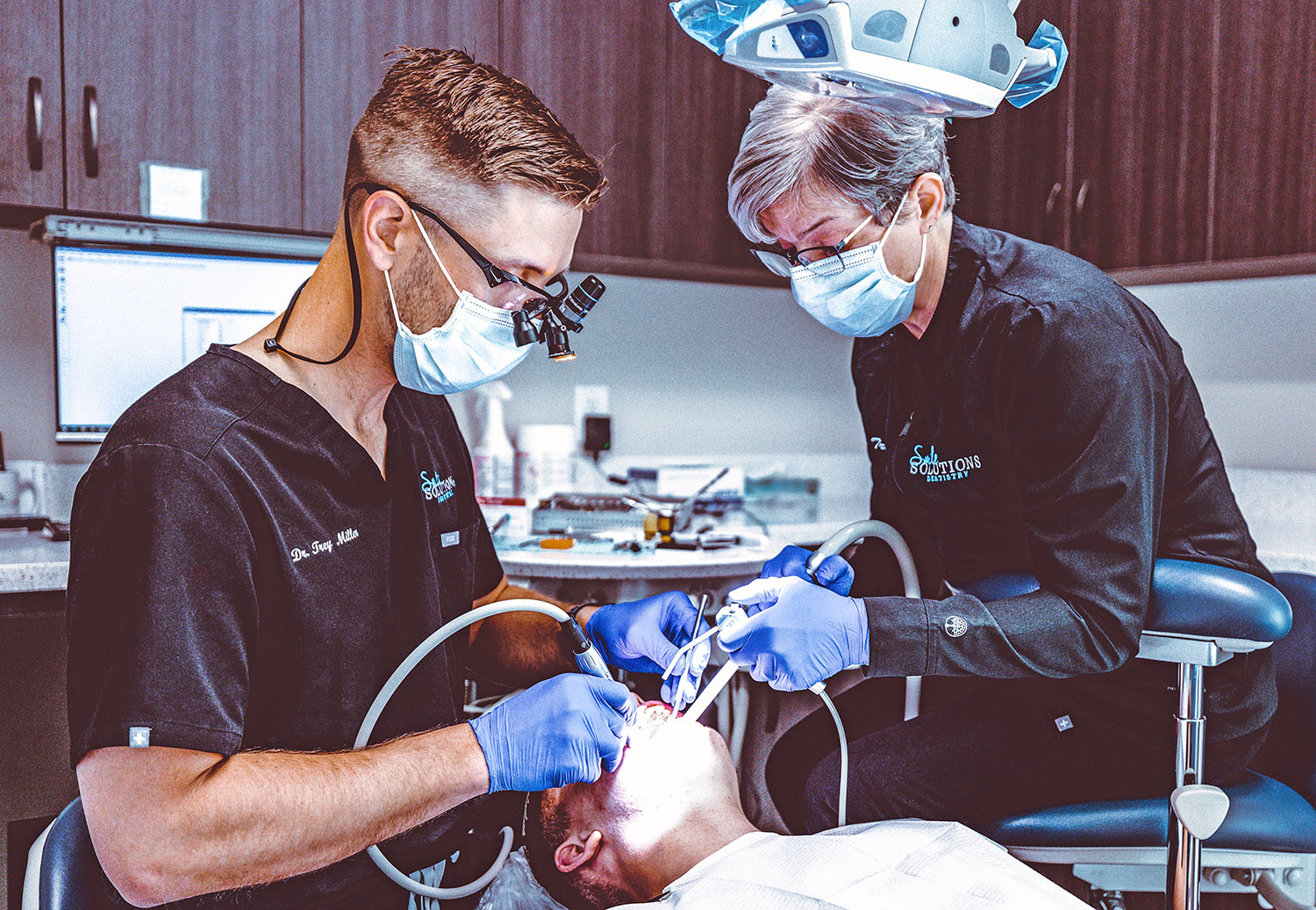The Link Between Oral Health and Alzheimer’s Disease
Did you know that the latest research shows that poor oral health can put you at a higher risk for chronic diseases like Alzheimer’s? According to a recent study conducted by researchers from the National Institute on Aging (NIA), there is evidence to suggest that the bacteria responsible for periodontal disease and the resulting chronic inflammation may be linked to the onset of Alzheimer’s disease and related cognitive disorders, particularly vascular dementia.
Alzheimer’s is a devastating disease with far-reaching effects on families. If oral health does indeed play a role in Alzheimer’s, it underscores the importance of elevating our dental hygiene to potentially lower the risk as we age. We’re going to touch on some ways in which we can proactively reduce the risk of chronic disease with simple hygiene habits.
Flossing
Dental flossing is crucial for maintaining oral health as it serves as a powerful tool in preventing gum disease. Regular flossing removes plaque and food particles from between teeth and along the gumline, areas that are often missed by brushing alone. By eliminating these sources of bacteria, flossing helps to inhibit the development of gum disease, including gingivitis and periodontitis. When left untreated, these conditions can lead to more severe issues like tooth loss and systemic health problems. Thus, incorporating dental flossing into one’s daily oral hygiene routine is a proactive measure that promotes healthier gums and overall oral well-being.
For those seeking chemical-free floss options, unflavored and unwaxed dental floss made from nylon or PTFE (polytetrafluoroethylene) is a good choice. These floss types are generally free from added chemicals or flavorings.
Tongue Scraping
Tongue scraping is a practice that involves gently scraping the surface of the tongue with a specially designed tool or tongue scraper to remove accumulated debris, bacteria, and dead cells. This practice can help improve oral health in several ways. By removing these contaminants from the tongue, it can contribute to fresher breath and a cleaner feeling in the mouth. Additionally, tongue scraping may reduce the presence of harmful bacteria that can lead to issues like dental decay and gum disease, as well as improve taste perception. It’s a simple and effective step in maintaining overall oral hygiene and promoting a healthier mouth.
Easy On the Fluoride
Fluoride, when used in excessive amounts or without proper balance, can potentially disrupt the balance of healthy bacteria in the mouth. While fluoride can be helpful for preventing tooth decay by strengthening enamel and reducing acid production by harmful bacteria, excessive exposure can kill or inhibit beneficial bacteria in the oral microbiome. This delicate microbial balance plays a crucial role in overall health, as it can affect digestion, immunity, and even cardiovascular health. Therefore, it’s important to use fluoride in moderation and maintain a well-rounded approach to oral hygiene that includes proper brushing, flossing, and regular dental check-ups to support both oral health and the overall health of the body.
Mouth Taping
Mouth taping is a practice where a person applies a specialized tape over their lips during sleep to encourage nasal breathing and discourage mouth breathing. The idea behind this practice is to promote better oral health and overall well-being. Breathing through the nose during sleep helps maintain proper moisture levels in the mouth, which can reduce the risk of dry mouth and related dental issues such as cavities and gum disease. It can also potentially improve sleep quality and reduce the likelihood of snoring and sleep apnea. However, it’s essential to approach mouth taping with caution and consult with a healthcare professional to ensure it’s appropriate for individual needs and circumstances, as it may not be suitable for everyone.
Regular Checkups
Regular dental checkups are essential for maintaining good oral health and preventing dental problems. Dentists can identify and address issues like cavities, gum disease, and oral cancer early on, often before symptoms become noticeable. The American Dental Association recommends that most adults should visit the dentist for a checkup and cleaning every six months. However, the frequency of dental visits may vary based on an individual’s specific oral health needs and any ongoing dental concerns. Some people with a history of dental problems or specific health conditions may benefit from more frequent visits, while others with excellent oral health may need checkups less frequently. It’s best to consult with a dentist to determine the appropriate schedule for your unique oral health circumstances.
Additional Resources
If you’re interested in a deep-dive on this topic, then visit the Dhru Purohit Podcast and listen to his latest episode with Dr. Mark Burhenne: “Poor Oral Health Leads To Alzheimer’s: How To Fix Your Mouth For Longevity“.
Conclusion
Alzheimer’s is a devastating disease, and the emerging connection between poor oral hygiene and its potential contribution emphasizes the importance of proactive prevention. By maintaining good oral health practices, such as regular brushing, flossing, and dental checkups, we can take crucial steps in reducing the risk of Alzheimer’s and promoting overall well-being. It’s a reminder that small, daily efforts in oral hygiene can have significant implications for our long-term health, emphasizing the need for a holistic approach to wellness and disease prevention.




